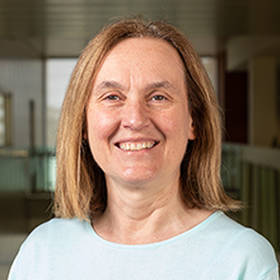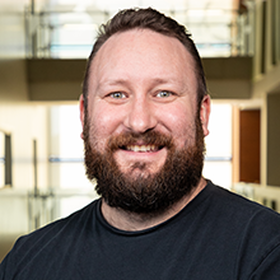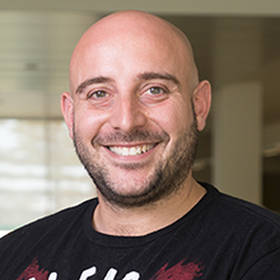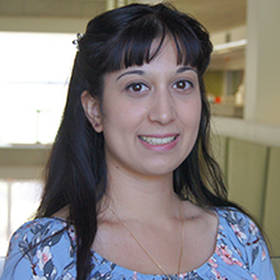- About
- People
- Projects
- Key Publications
- Funding
- Collaborations

The Queen Elizabeth Hospital (TQEH) Clinical Pharmacology Unit was the first hospital pharmacology unit in Australia, and now provides both a routine diagnostic clinical service and an active medical research program affiliated with the Discipline of Pharmacology at The University of Adelaide. Our aim is, wherever possible, to combine both clinical service and basic research, so as to translate new research findings into new laboratory and clinical skills that contribute to state-of-the-art clinical care of patients.
Led by Professor Betty Sallustio, the Unit’s research group focuses on the areas of heart disease, kidney transplantation and cancer. We aim to individualise drug therapy through the use of therapeutic drug monitoring, particularly of immunosuppressant drugs used in kidney transplantation and the anti-anginal agent perhexiline in cardiac care. Through research in these fields we strive to provide a better understanding of drug action, metabolism and disposition in patients with varied genetic makeup in order to better use these agents and tailor them to each individual, and to develop new therapies.
Researchers
-

Professor Betty Sallustio
Position: Principal Medical Scientist
Phone: +61 8 8222 6510
Email: [email protected]
Profile: View profile
UoA: Betty Sallustio
-

-

Students
Additional Staff Members
| Name | Position |
|---|---|
| Fiona Wicks | Senior Technical Officer |
| Catherine DeNichilo | Technical Officer |
| Denise Dinow | Technical Officer |
| Zac Bowden | Technical Officer |
| Stace Kalaitsidis | Technical Officer |
Student Alumni
| Name | Degree | Year Awarded | Thesis title | Supervisors |
|---|---|---|---|---|
| Michelle Sims | First Class Honours, The University of Adelaide | 2020 | New therapies for Doxorubicin induced myocardial toxicity | Sallustio BC, Licari J, Evdokiou A |
| Dr Rong Hu | PhD, The University of Adelaide | 2019 | Pharmacogenomics research on tacrolimus and mycophenolate mofetil among patients receiving kidney transplantation | Somogyi AA, Sallustio BC, Coller JK, Daniel TB |
| Dr Zaipul Md Dom | PhD, The University of Adelaide | 2017 | Mycophenolic Acid Pharmacokinetics and Clinical Outcomes in Renal Transplantation: Effect of ABCC2 Haplotype Analysis and Distribution into Lymphocytes and Kidney | Sallustio BC, Somogyi AA, Coller JK |
| Dr Cher-Rin Chong | PhD, The University of Adelaide | 2017 | A pharmacological approach towards myocardial protection: new perspectives in acute and chronic cardiac disease | Horowitz JD, Sallustio BC |
| Dr John Licari | PhD, The University of Adelaide | 2013 | The stereoselective pharmacodynamics of the enantiomers of perhexiline | Sallustio BC, Somogyi AA, Milne RW |
- Investigating the efficacy of new myocardial metabolic agents in the treatment of heart failure and ischaemic heart disease.
- Developing new therapies for chemotherapy-induced myocardial toxicity in cancer patients.
The success of kidney transplantation depends largely on preventing rejection of the new organ, using a combination of immunosuppressant drugs. These drugs have narrow therapeutic indices and can cause renal, gastrointestinal or haematological toxicity. Due to significant variability in their elimination from the body, doses are currently individualised by targeting therapeutic concentrations in the blood. Despite this, rejection and toxicity still occur. Our research focuses on understanding immunosuppressant distribution into lymphocytes (the mediators of rejection) and renal tissue (a major site of toxicity), as a means of better predicting individual risk of rejection and damage to the transplanted organ.
Please visit the PUBLICATIONS page on Associate Professor Betty Sallustio’s University of Adelaide Researcher Profile.
PATENTS
March 2014: Provisional patent application: “New Indications for (-)-Perhexiline”. BC Sallustio, G Licari, P Milner, P Druzgula
September 2013: Uses of (-)-Perhexiline. International Patent Corporation Treaty (PCT) Patent Application #PCT/AU2013/001008 (Filed 5 September 2013).
September 2012: Sallustio BC, Milne RW, Licari G and Somogyi AA. Use of Enantiomers of Perhexiline. Provisional Patent Application #2012903850, Australia (Lodged Sep 5, 2012).
September 2012: Sallustio BC, Milne RW, Licari G and Somogyi AA. Use of Enantiomers of Perhexiline. Provisional Patent Application #61697214, USA (Lodged Sep 5, 2012).
Funding since 2012
| Chief Investigators | Granting Body | Project Title | Total Grant Amount | Funding Period |
|---|---|---|---|---|
| BC Sallustio, A Evdokiou, JD Horowitz, | NHMRC – Project Grant (APP1145776) | Prevention of heart damage during anthracycline cancer chemotherapy | $327,214 | 2018 - 2020 |
| Sallustio BC, Evdokiou A, Horowitz JD | The Hospital Research Foundation/The University of Adelaide | Equipment: Vivid Iq Premium, Rodent Echocardiography System | $77,600 | 2018 |
| AA Somogyi, BC Sallustio, JK Coller, M Hutchinson, D Barratt | The University of Adelaide - Pharmacology Equipment Round | Ultra high performance liquid chromotography - tandem mass spectrometer | $302,000 | 2017 |
| BC Sallustio, A Evdokiou, JD Horowitz | Cancer SA – Beat Cancer Project | Prevention of heart damage during anthracycline cancer chemotherapy | $75,000 | 2016 |
| BC Sallustio | Adelaide Research and Innovation (ARI), Commercial funding from Heat Metabolics Ltd. | $150,000 | 2014 - 2015 |
|
| BC Sallustio, JD Horowitz, JA Kennedy, MP Frenneaux | National Heart Foundation - Grant-in-aid | Utility of (+)- and (-)-perhexiline as model compounds for the development of new myocardial metabolic agents | $130,000 | 2012 - 2013 |
| Collaborator | Institution | City | Country |
|---|---|---|---|
| Professor John Horowitz, Dr Cher-Rin Chong, Cardiovascular Pathophysiology and Therapeutics Group | Basil Hetzel Institute, The Queen Elizabeth Hospital | Adelaide | Australia |
| Professor Andreas Evdokiou, Breast Cancer Research Unit | Basil Hetzel Institute, The Queen Elizabeth Hospital | Adelaide | Australia |
| Professor Andrew Somogyi, Dr Janet Coller, Dr Daniel Barratt | The University of Adelaide | Adelaide | Australia |
| Dr Shilpa Jesudason | Royal Adelaide Hospital | Adelaide | Australia |
| Dr Mark Condina | University of South Australia | Adelaide | Australia |
| Dr Mary Kavurma | Heart Research Institute | Sydney | Australia |





